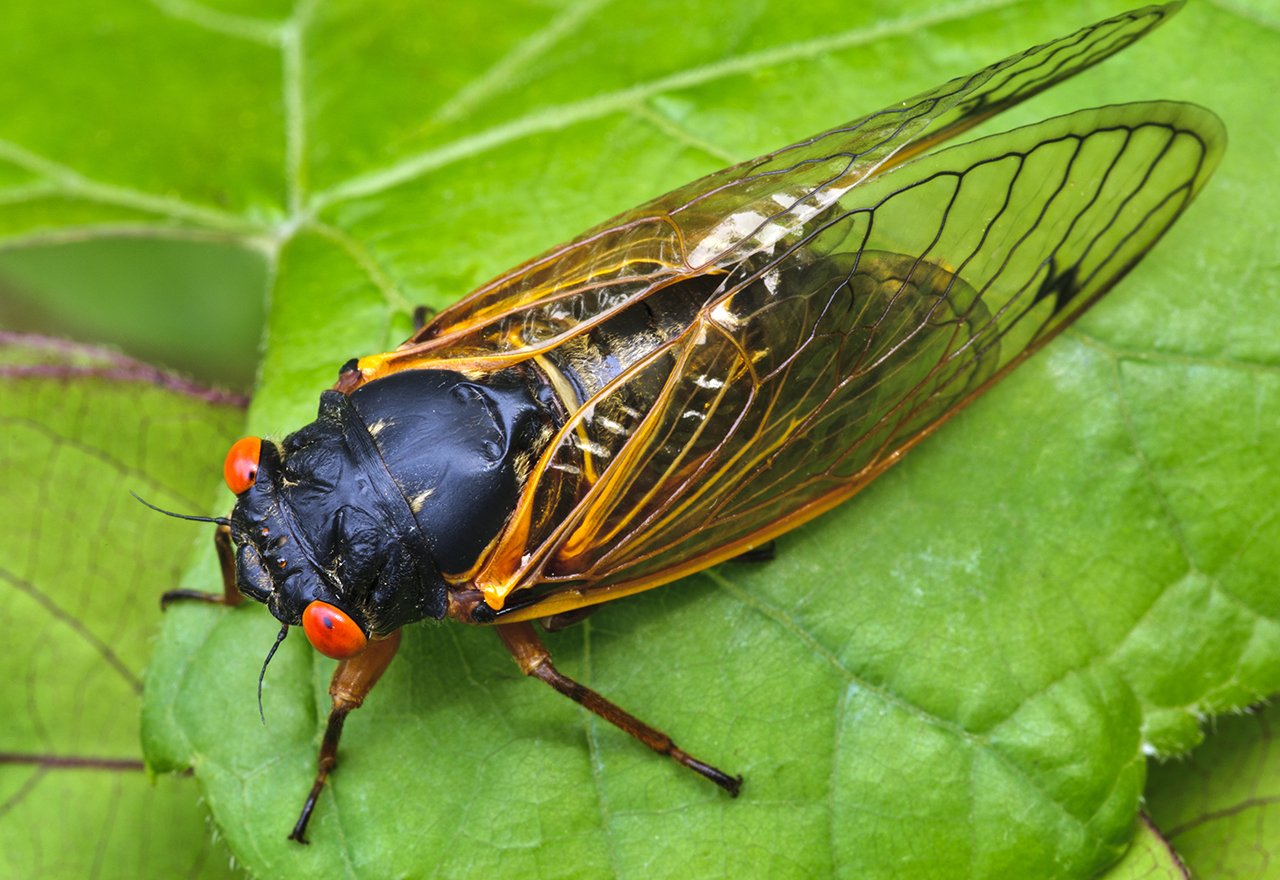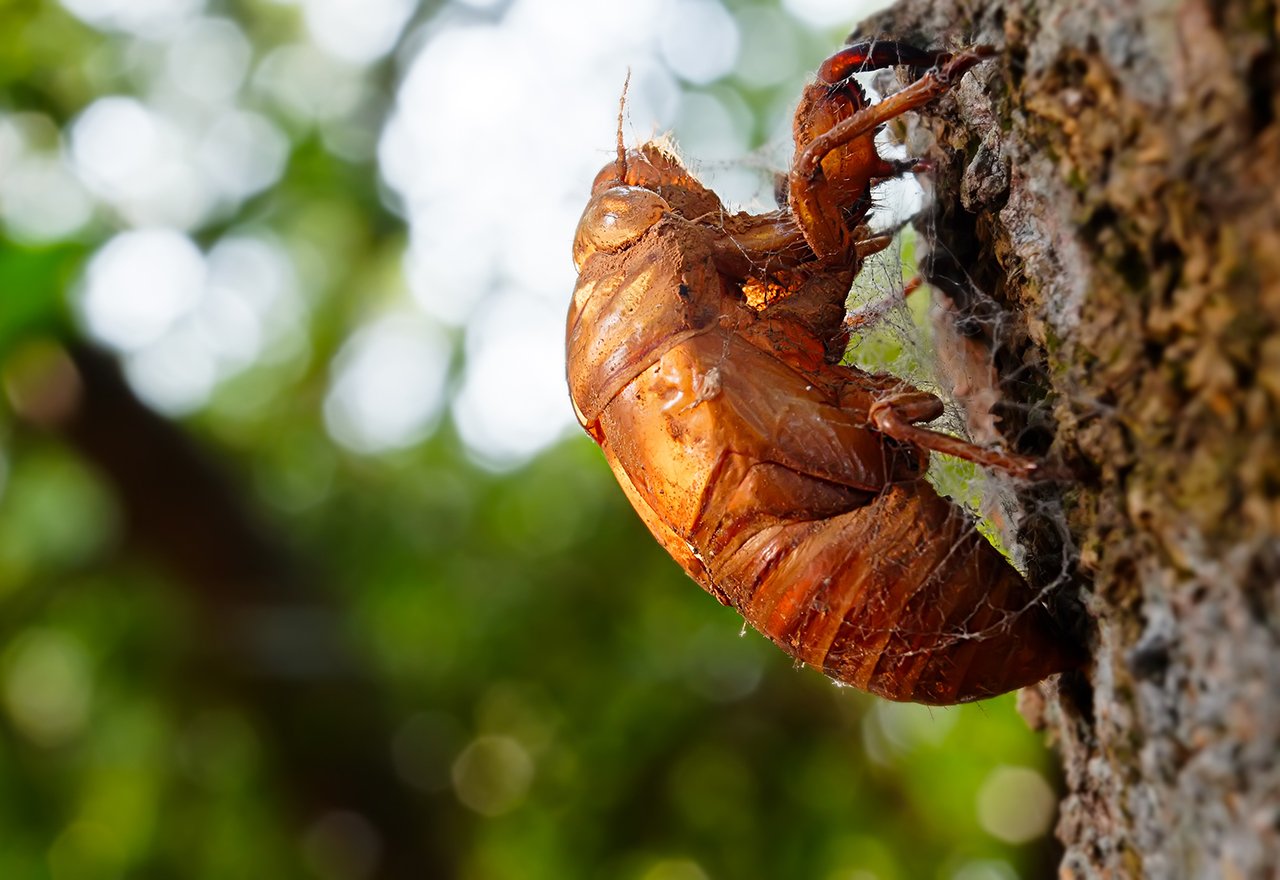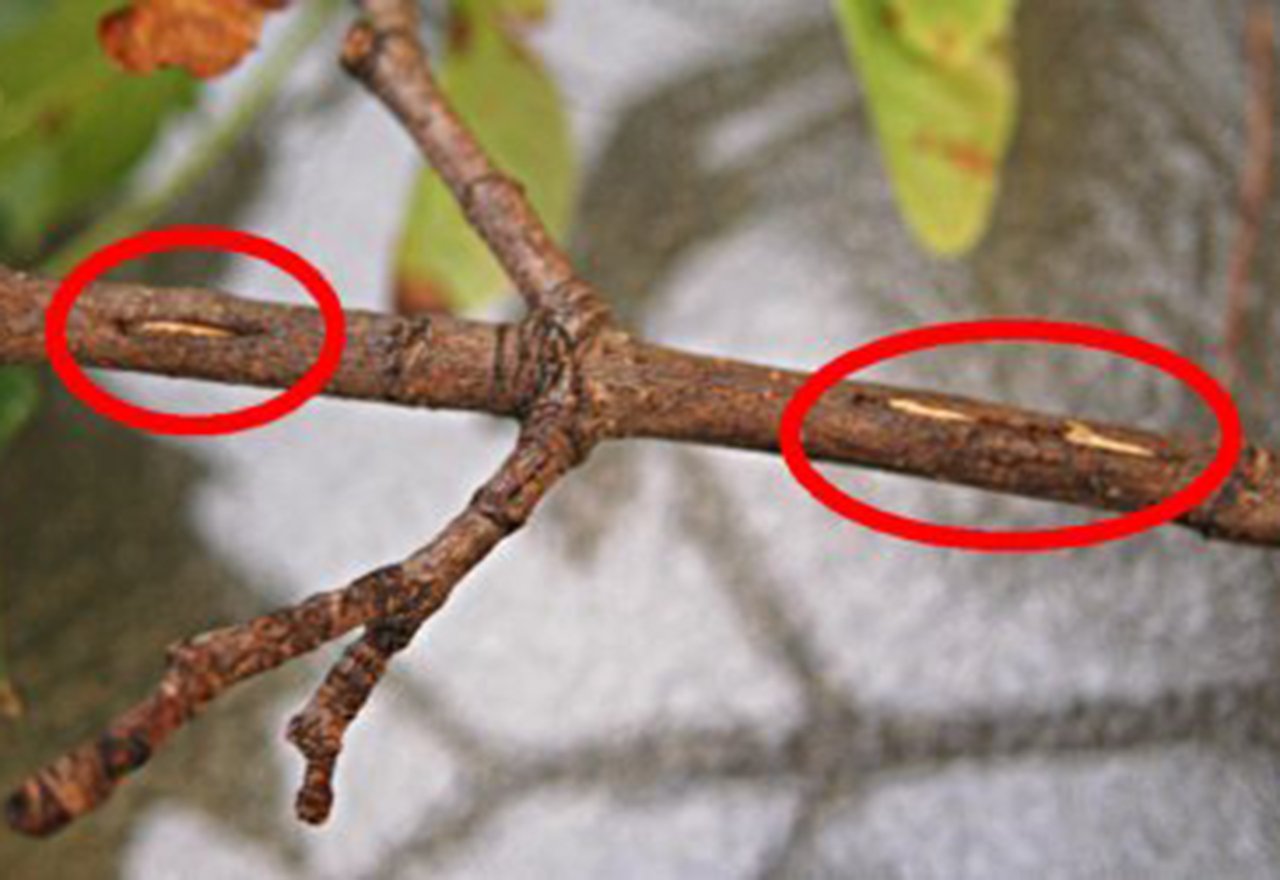The Return Of The 17-Year Locusts!
by Alec McClennan, on April 19, 2019

THEY'RE BACK!
This year, cicada bugs, a.k.a. 17-year locusts, will emerge in Northeast Ohio.
Cicadas live almost all of their 17 year life underground before emerging. When they emerge, Cicada Nymphs climb trees, shed their skin and fly. The one goal of the flying adult Cicada is to mate and produce more cicadas.

The good news is that these adult cicadas will live only four to six weeks (males die shortly after mating). But it's going to be a noisy four to six weeks. From sunrise to sunset we will be hearing the high pitched and shrill mating song of the males. Where a lot of these insects are present their "singing" can be quite annoying.
Because so many of them (think millions) will descend on us all at once, they can harm your young trees and shrubs. When the female lays her eggs, she looks for the small branches of deciduous trees (not pine trees). This applies to trees like Apple, Cherry, Dogwood, Japanese Maple, Hickory, Oak, Maple, Ash, Holly, Willow, etc. They will even plant eggs in grape vines, lilacs, raspberry vines, rhododendron, roses, Rose of Sharon, spirea and viburnum. Generally most flowers, herb and vegetables are safe.
Tree and shrubs are damaged because, to lay her eggs, the female cuts slits into the branches. She will cut two slits and lay about two dozen eggs. Then she moves on to another branch and does it again, and again, until she's laid up to 600 eggs. This egg laying process often results in the branch dying and sometimes falling off. While more mature trees can withstand this abuse, younger trees and bushes may not survive.

What can you do to protect your young trees and shrubs this year?
For starters, you may want to wait to plant that new Dogwood tree (or other young trees and shrubs) until fall. Secondly, you can protect your young trees with netting, such as mosquito netting. And, when you do see damaged branches, you should remove them right away. As always, the Good Nature is here to help you control these pests.
Contact us today to learn more about our Organic Tree & Shrub Care Program.













